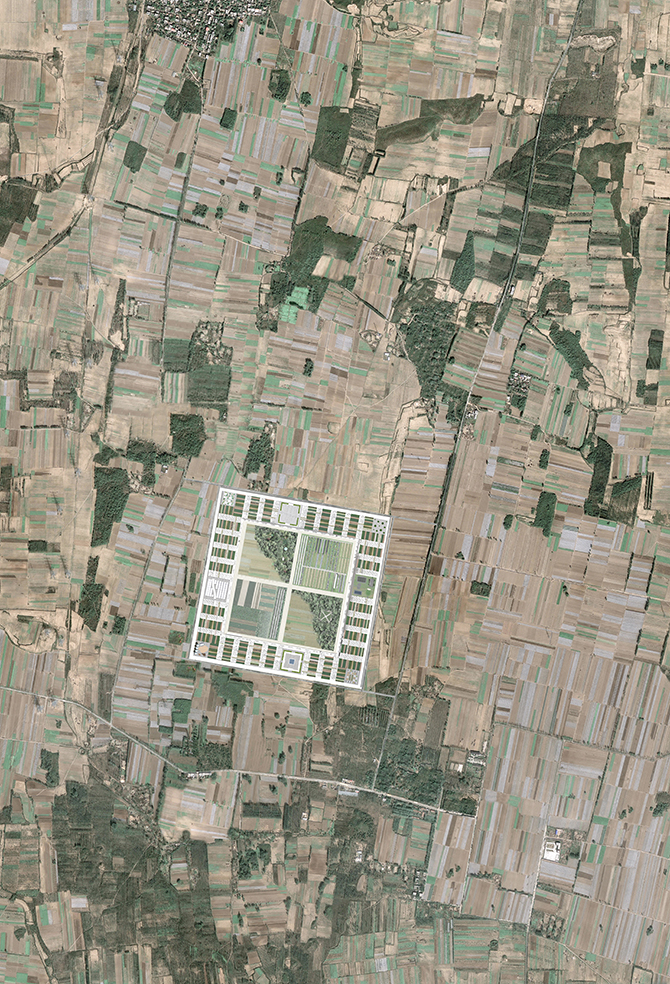Rural Village, Zhengzhou, China
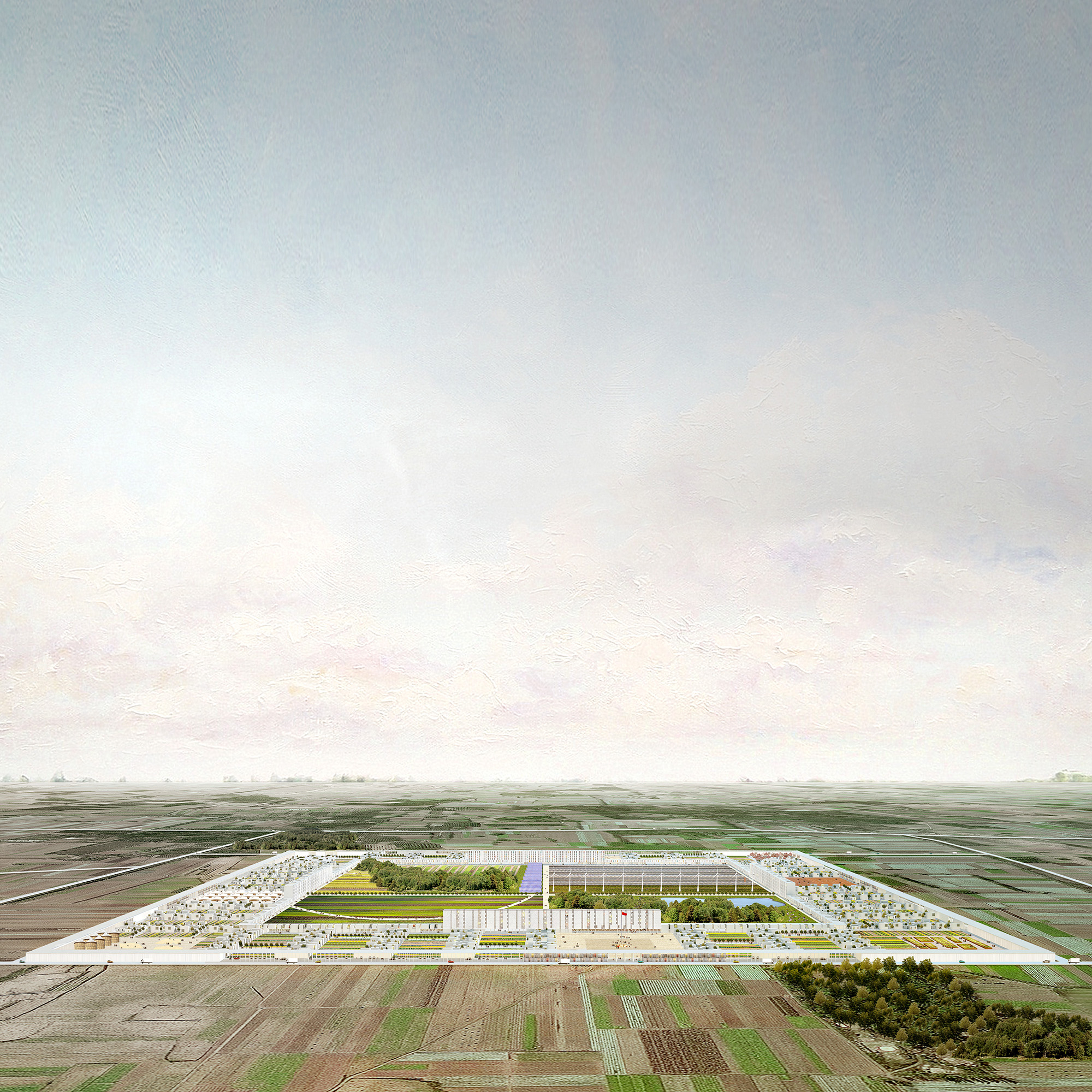
With rapid urbanization rates and the social and economic disparity between urban and rural populations, influenced by the Hukou system, China is searching for new means to bridge this gap between the urban population and rural villagers. The government’s goal for Rural Urbanization looks to upgrade and consolidate villages to provide better amenities and services, make land more efficient to improve food security and to make the town more attractive to prevent rural migration.
The residential status of peasant village members allows villagers to own land as part of a collective, which enables them to live off the land and make a means for themselves. However, the advent of rural urbanization dissolves the definition of what it means to be a rural villager - by stripping away their land, therefore taking away their jobs as well as their way of life. We believe this shift towards rural urbanization is spatially unbalanced and therefore creating a rural urbanization in disconnection with all that is rural. “Agricultural land in China is often wiped clean of all previous historic or cultural significance to make way for urbanization.”
In order to transition the gap between rural and urban, we must distill and safe guard the traditions and characteristics of rural life in China. Learning from the tradition of city making in ancient China and the philosophy that underpins it, the Imperial city embraces ideas of Confucinist thinking, with emphasis on unity, community, harmony, and balance. Constructed from the dominant type of the traditional courtyard house, the scalable deep structure uses the idea of framing to organize, define and capture. Our design for the new town utilizes the scalability of the frame as a social and spatial framework to harness the ideas of collectiveness as seen in the rural villages. In delineating 4 edges, our strategy of framing is not to promote a dense urban core, but rather to use the frame as a strong, simple and clear architectural artefact to create an aesthetic and productive object through the use of landscape.
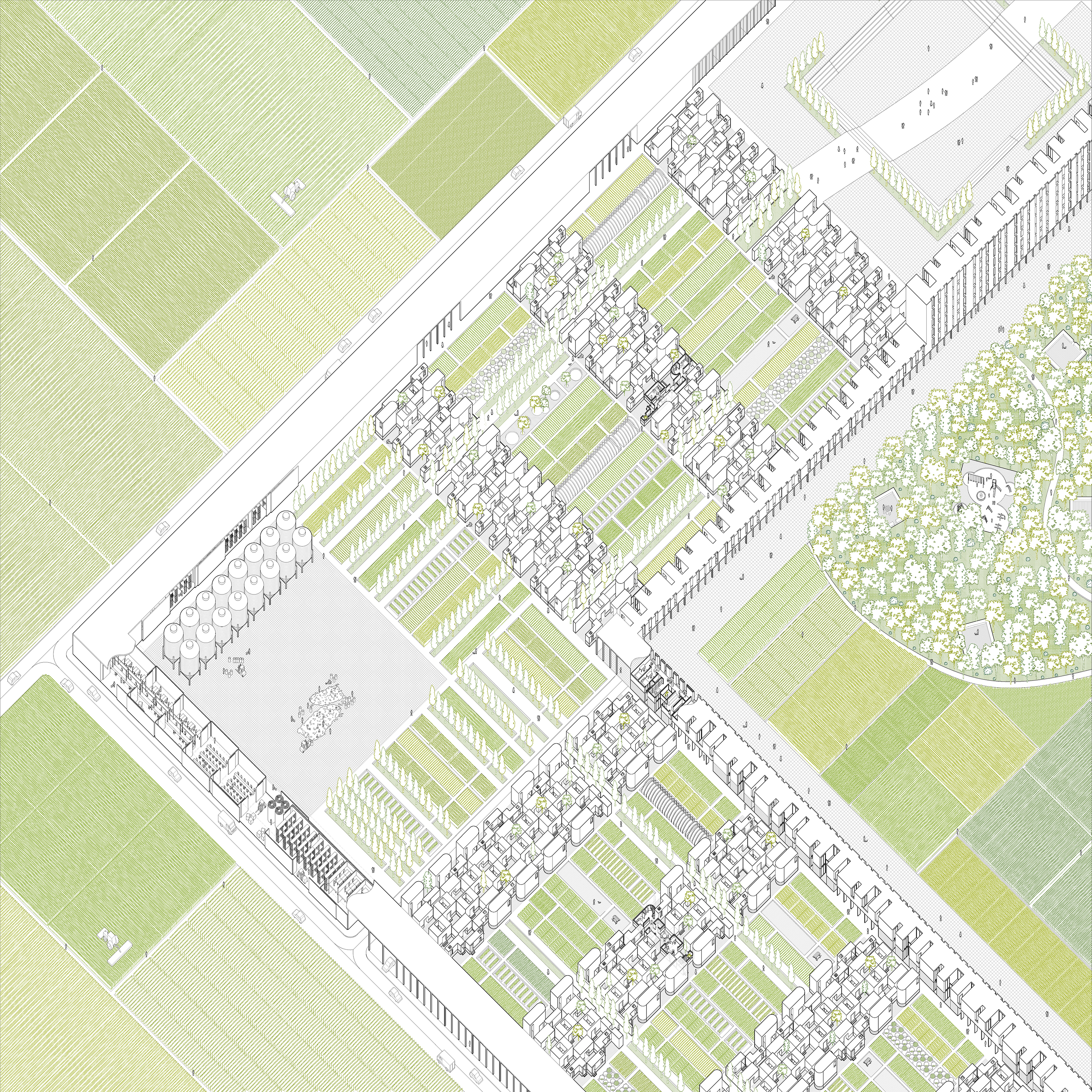

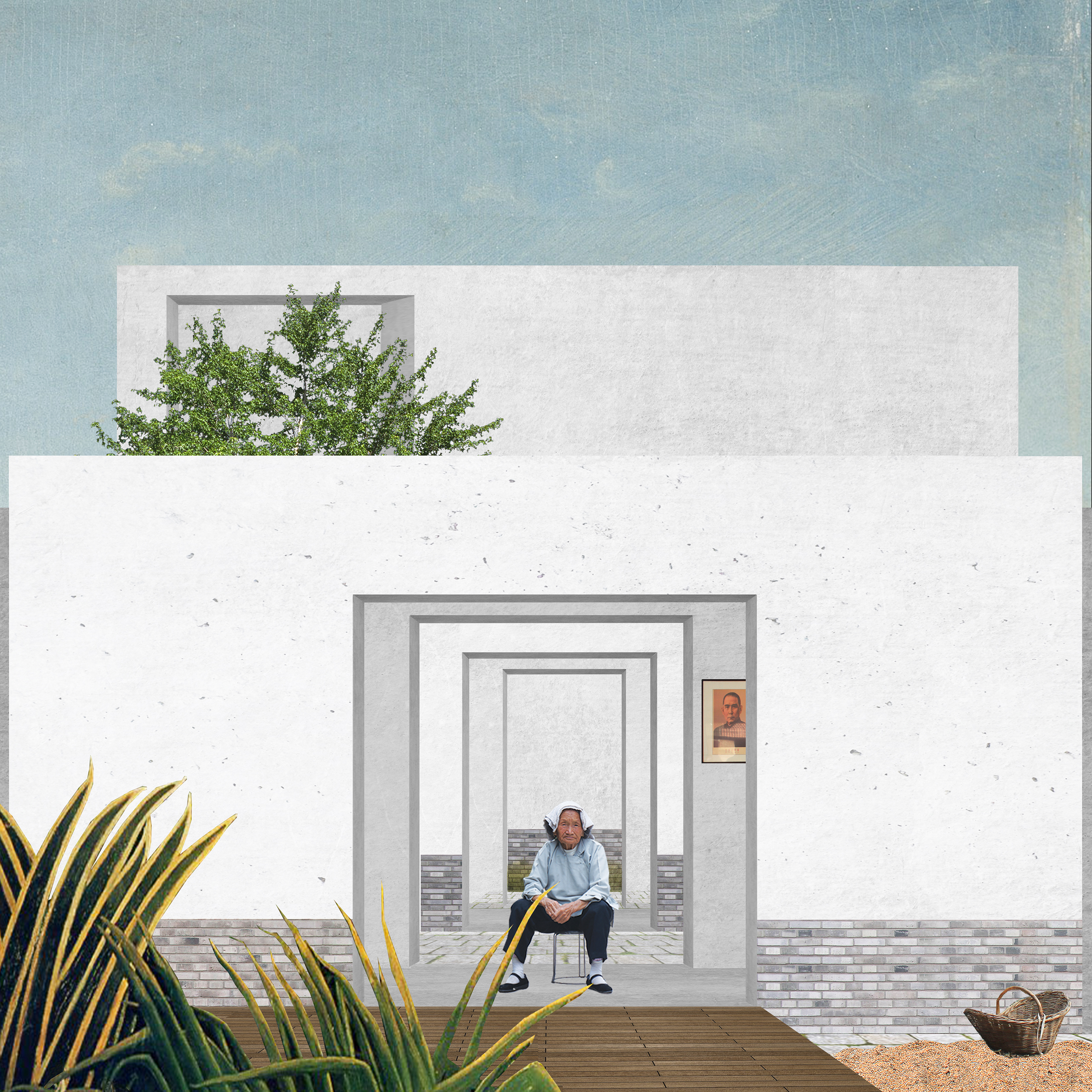
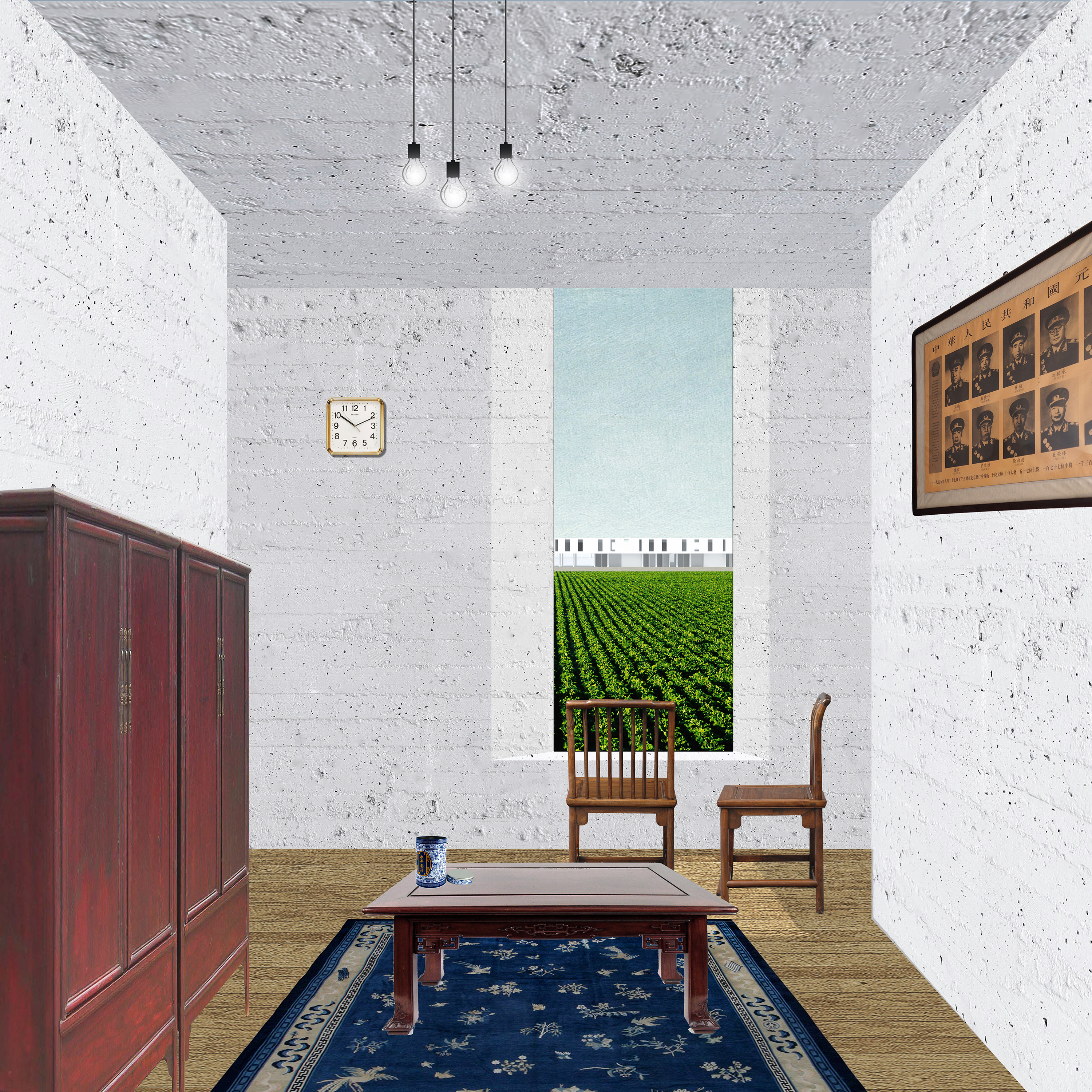
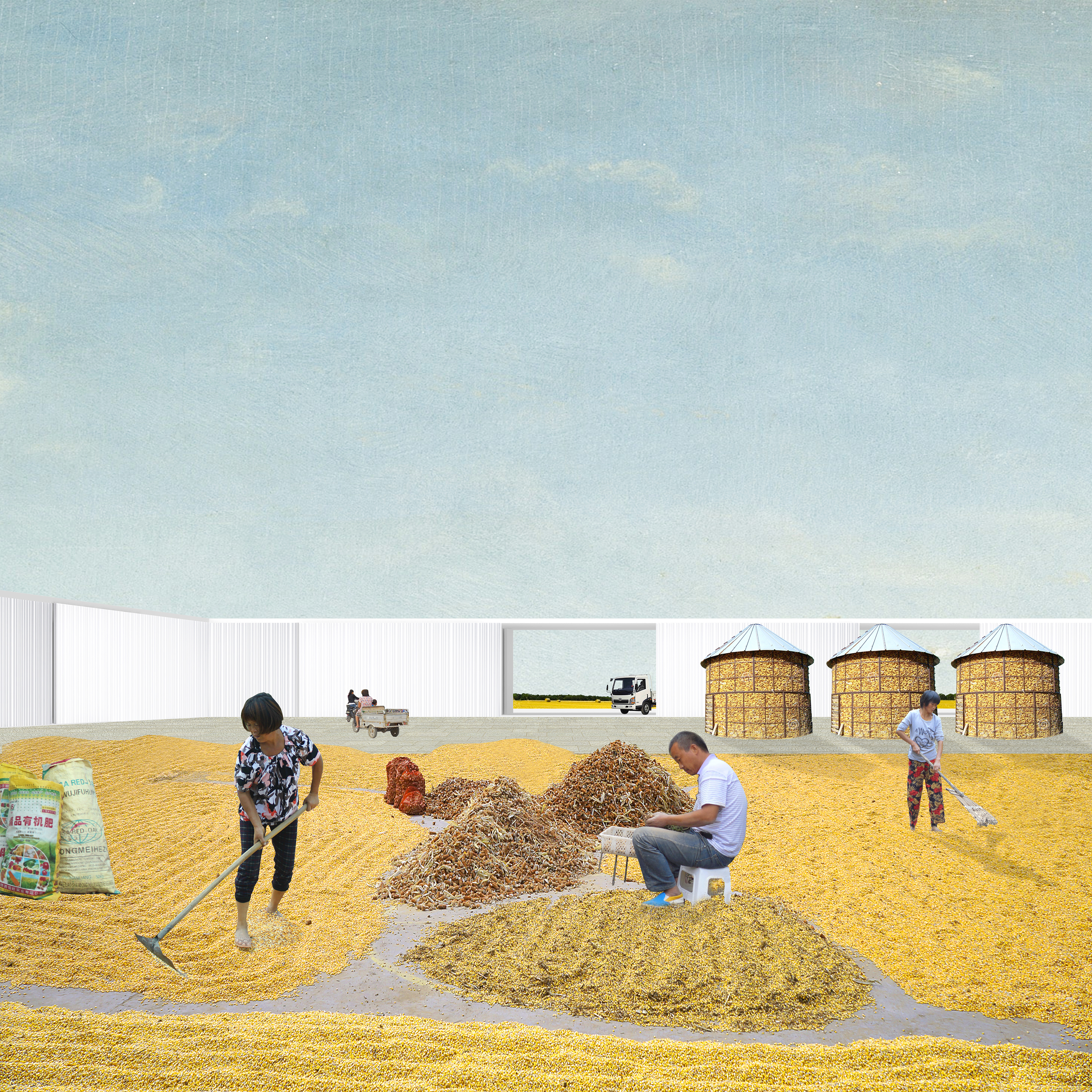

-
